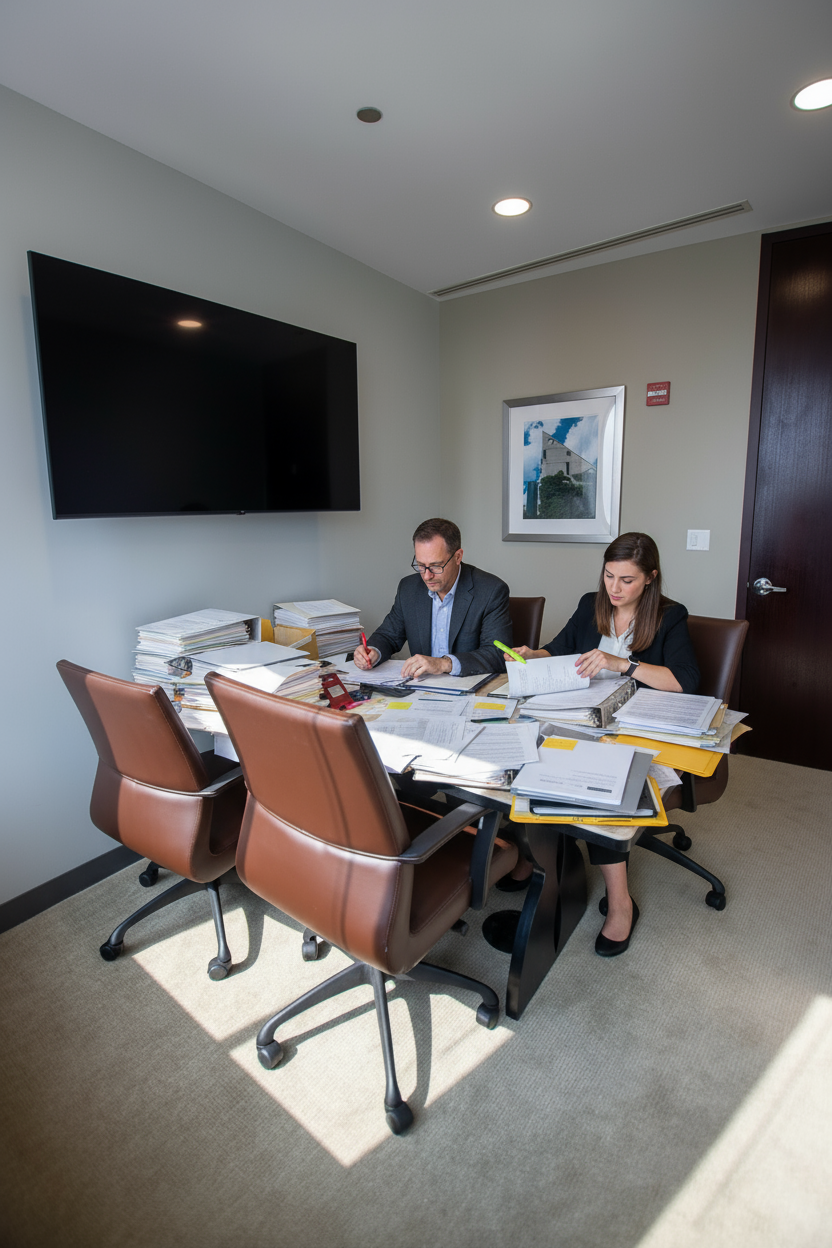How Forensic Accountants Collaborate with Law Enforcement
What is Forensic Accounting?
Forensic accounting is a specialized field of accounting that combines financial expertise with investigative skills to uncover financial discrepancies, fraud, and other irregularities. Unlike traditional accountants who focus on preparing financial statements or managing budgets, forensic accountants delve into the details of financial records to identify inconsistencies, trace transactions, and uncover evidence of wrongdoing. Their work often bridges the gap between accounting and law enforcement, making them invaluable in criminal investigations and legal disputes.
The unique skill set of forensic accountants includes a deep understanding of accounting principles, auditing techniques, and investigative methods. They are trained to analyze complex financial data, identify patterns, and detect anomalies that may indicate fraudulent activity. Additionally, forensic accountants are adept at presenting their findings in a clear and concise manner, often serving as expert witnesses in court. Their ability to translate complex financial information into actionable insights makes them a critical asset in uncovering financial crimes and ensuring justice is served.
The Role of Forensic Accountants in Criminal Investigations
Forensic accountants play a pivotal role in assisting law enforcement agencies with cases involving financial crimes such as fraud, embezzlement, money laundering, and tax evasion. These crimes often involve intricate schemes designed to conceal illegal activities, making it challenging for traditional investigators to uncover the truth. Forensic accountants step in to trace financial transactions, identify suspicious patterns, and connect the dots between seemingly unrelated data points.
For example, in cases of embezzlement, forensic accountants analyze financial records to identify unauthorized transactions or discrepancies in account balances. In money laundering investigations, they follow the trail of illicit funds through multiple accounts and jurisdictions to uncover the source and destination of the money. Their expertise is also crucial in uncovering fraudulent schemes, such as Ponzi schemes, where they analyze cash flow patterns to reveal the unsustainable nature of the operation.
By providing detailed financial analyses and evidence, forensic accountants help law enforcement build strong cases against perpetrators. Their findings often serve as the foundation for criminal charges and are instrumental in securing convictions in court.
Key Techniques and Tools Used by Forensic Accountants
Forensic accountants employ a variety of techniques and tools to uncover financial irregularities and support law enforcement investigations. Some of the most common methods include:
Data Analysis: Forensic accountants use advanced data analysis techniques to identify patterns, trends, and anomalies in financial records. This may involve analyzing large datasets to detect unusual transactions or inconsistencies.
Forensic Auditing: This involves a detailed examination of financial records, including bank statements, invoices, and contracts, to identify discrepancies or evidence of fraud.
Digital Forensics: In today's digital age, forensic accountants often work with digital forensics experts to recover and analyze electronic data, such as emails, spreadsheets, and transaction logs.
Tracing Transactions: Forensic accountants meticulously trace the flow of funds through various accounts and entities to uncover hidden assets or illicit activities.
Specialized Software: Tools like IDEA, ACL, and Tableau are commonly used to analyze financial data, visualize trends, and detect irregularities. These tools enable forensic accountants to process large volumes of data efficiently and accurately.
By combining these techniques with their expertise, forensic accountants can uncover even the most complex financial schemes and provide actionable insights to law enforcement.
Collaboration Between Forensic Accountants and Law Enforcement
The collaboration between forensic accountants and law enforcement is a critical component of financial crime investigations. Forensic accountants work closely with detectives, prosecutors, and other law enforcement officials to gather evidence, analyze financial data, and build a comprehensive case against suspects.
Effective communication is key to this collaboration. Forensic accountants must present their findings in a manner that is easily understood by non-financial professionals, such as police officers and attorneys. This often involves creating detailed reports, visualizations, and summaries that highlight key evidence and explain its significance.
Additionally, forensic accountants play a crucial role in the collection and preservation of evidence. They ensure that financial records are obtained legally and that the chain of custody is maintained, which is essential for the admissibility of evidence in court. By working hand-in-hand with law enforcement, forensic accountants help ensure that investigations are thorough, accurate, and legally sound.
Real-World Applications of Forensic Accounting in Law Enforcement
Forensic accountants have been instrumental in solving numerous high-profile cases involving financial crimes. One notable example is the investigation into the Enron scandal, where forensic accountants uncovered widespread accounting fraud that led to the company's collapse. Their findings were critical in securing convictions against key executives and highlighting the need for stricter corporate governance.
Another example is the Bernie Madoff Ponzi scheme, one of the largest financial frauds in history. Forensic accountants played a key role in tracing the flow of funds, identifying victims, and recovering assets. Their work not only helped bring Madoff to justice but also provided valuable insights into preventing similar schemes in the future.
These real-world examples demonstrate the significant impact forensic accountants have on law enforcement efforts. Their ability to uncover hidden financial crimes and provide compelling evidence is essential in holding perpetrators accountable and protecting the public from financial harm.
Challenges Faced by Forensic Accountants in Law Enforcement Cases
Despite their expertise, forensic accountants face numerous challenges when working on law enforcement cases. Some of the most common obstacles include:
Incomplete Records: Perpetrators often destroy or manipulate financial records to conceal their activities, making it difficult to obtain a complete picture of the crime.
Encrypted Data: In the digital age, criminals frequently use encryption and other security measures to protect their data, requiring forensic accountants to work with digital forensics experts to access critical information.
Complex Financial Schemes: Financial crimes often involve intricate schemes with multiple layers of transactions, shell companies, and offshore accounts, making it challenging to trace the flow of funds.
Time Constraints: Law enforcement investigations are often time-sensitive, requiring forensic accountants to work quickly and efficiently to provide actionable insights.
Despite these challenges, forensic accountants leverage their expertise, tools, and collaboration with other professionals to overcome obstacles and deliver valuable results.
The Legal and Ethical Responsibilities of Forensic Accountants
Forensic accountants must adhere to strict legal and ethical standards when working with law enforcement. Objectivity is paramount, as their findings must be unbiased and based solely on the evidence. Any perception of bias could undermine the credibility of their work and jeopardize the investigation.
Additionally, forensic accountants must ensure that their methods comply with legal standards, such as obtaining evidence through proper channels and maintaining the chain of custody. Ethical considerations, such as confidentiality and professional integrity, are also critical. Forensic accountants must navigate these responsibilities carefully to maintain their credibility and uphold the integrity of the investigation.
How to Become a Forensic Accountant Working with Law Enforcement
Aspiring forensic accountants must meet specific educational and professional requirements to enter the field. Key steps include:
Earn a Degree: A bachelor's degree in accounting, finance, or a related field is typically required. Some professionals also pursue advanced degrees in forensic accounting or criminal justice.
Obtain Certifications: Certifications such as Certified Public Accountant (CPA) and Certified Fraud Examiner (CFE) are highly valued in the field and demonstrate expertise in forensic accounting.
Gain Experience: Practical experience in accounting, auditing, or law enforcement is essential for developing the skills needed to succeed as a forensic accountant.
Develop Key Skills: Strong analytical, investigative, and communication skills are critical for forensic accountants. Familiarity with data analysis tools and forensic software is also beneficial.
By following these steps, aspiring forensic accountants can build a rewarding career working alongside law enforcement to combat financial crime.
The Future of Forensic Accounting in Law Enforcement
The field of forensic accounting is evolving rapidly, driven by advancements in technology and the growing complexity of financial crimes. Emerging trends include the use of artificial intelligence (AI) and machine learning to analyze large datasets and detect anomalies more efficiently. Blockchain analysis is also becoming increasingly important as cryptocurrencies are used in financial crimes.
As cybercrime and financial fraud continue to rise, the demand for forensic accountants is expected to grow. Their expertise will be critical in combating these threats and ensuring that law enforcement agencies have the tools and insights needed to stay ahead of criminals.
Contact Turning Numbers Forensic Accounting to discuss your case today.




